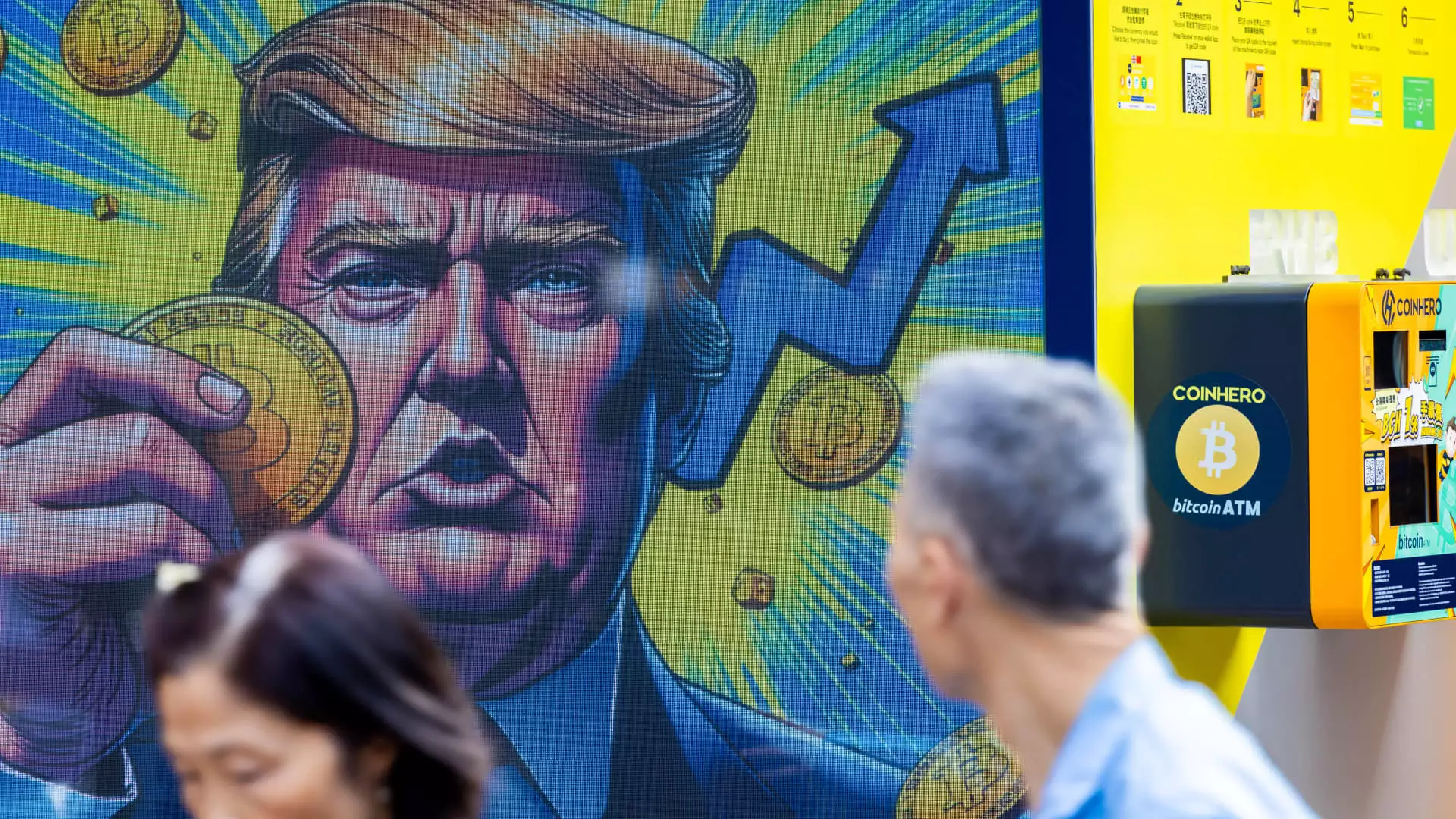In an astonishingly audacious move, former President Donald Trump has managed to garner approximately $900,000 in trading fees in just two days through his $TRUMP cryptocurrency token. The timing? A delightful pitch to the top 220 token holders promising an exclusive dinner with none other than Trump himself. This blatant commercialization of political access raises significant ethical issues, diverging from the traditionally held norms of presidential conduct. It epitomizes a point where politics and personal gain dangerously entwine, merging power with financial interest, and all in a memecoin package that thrives on hype rather than substantive value.
Memecoins like the $TRUMP token operate akin to digital assets that are more about online culture and speculative trends than any real-world functionality. With its launch in January, it has provoked waves of interest driven by nothing more than social media buzz—a stark deviation from how legitimate financial instruments typically operate. Given that nearly 80% of the $TRUMP supply is controlled by Trump’s organization, we’re forced to question whether this token is genuinely about cryptocurrency or a new avenue for enriching himself and his allies.
Presidential Perks or Pay-to-Play?
Critics have categorized the dinner event as a glaring instance of “pay to play” politics. Democratic leaders like Sen. Chris Murphy have expressed profound concern over the implications of a sitting president marketing exclusive access to himself in exchange for financial investment in a token that lacks intrinsic value. This is more than just a bizarre fundraising stunt; it’s a manifestation of a concerning trend where political capital and monetary gain intermingle uncomfortably.
Moreover, we speak not just of a marketing scheme but of a potential ethical abyss where the standards of acceptable behavior for a president seem to shift and adapt to personal gain. The dollar signs associated with the dinner offer make a mockery of the notion of equal access to political leaders, and the underlying message is dangerous: access to political power is something that can be bought.
The Regulatory Blind Spot
Delaney Marsco from the Campaign Legal Center has articulated the legal loopholes that allow Trump to engage in such dubious behavior without facing criminal scrutiny. The absence of laws explicitly forbidding these types of conflicts of interest for the presidency creates a vacuum that he has exploited. While his actions might not technically breach criminal statutes, they certainly breach the ethical expectations we hold for leaders.
Without robust regulations or a clear code of ethics to govern such financial activities, we face a convoluted scenario where elected officials can potentially manipulate policy for financial gain. It not only undermines public trust in governance but also illustrates the broader failure of our political system to hold individuals in power accountable for apparent self-serving actions.
Currency of Influence
The influence of money on politics is an age-old concern, but never before has it felt so blatantly transactional in the digital age. The whirlwind surrounding the $TRUMP token has implications not only for individual investors but for the very fabric of democratic principles. The dinner’s accessibility, largely depending on one’s financial commitment to the token, serves as a stark reminder of how influence and access can be commodified.
Moreover, the relatively recent interest of the cryptocurrency industry in political contributions complicates this landscape. Trump received considerable support from cryptocurrency backers during his first term, and now, paradoxically, he paints himself as an advocate for digital assets—marking a glaring u-turn from his earlier opposition. His alignment with this emerging market is not without its complications, though; the volatility and regulatory challenges of cryptocurrencies create a precarious environment for investors and political actors alike.
The Hit and Miss of Political Investing
For those tempted by the allure of cryptocurrencies in their portfolios, the Trump coin serves as a cautionary tale. Speculative investments, especially in the form of memecoins, come with inherent risks, and associating political figures with such volatile entities casts a shadow over the legitimacy of those investments. The description of the $TRUMP token as devoid of any definite product or service amplifies the concerns about its long-term viability, raising questions on whether buyers are simply participating in a glorified gambling game rather than investing in a meaningful asset.
Critics point out that the exorbitant fees generated from trading raise fair questions about the integrity of investment opportunities in this space. The psychological undercurrents of mob mentality often pervade markets such as cryptocurrencies, breeding an environment ripe for misconduct and insider manipulation. As more funds are funneled through ill-defined tokens, the specter of fraud looms ever larger.
As Trump’s cryptocurrencies position themselves as influential players in the digital asset realm, the consequences of such vivid intersections of business, politics, and ethics cannot be ignored. This not-so-subtle transformation of the political landscape could very well reshape what we deem acceptable in our leaders. The tranquillity of moral integrity feels threatened, and the merge of cryptocurrency with political influence may change the game in unforeseen, and potentially alarming, ways.

